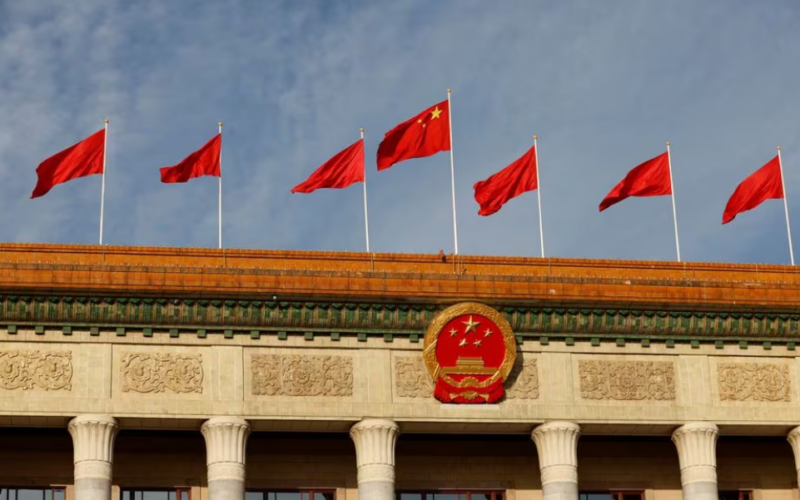China has reportedly cautioned Ukraine about potential repercussions on bilateral relations following Kyiv’s classification of over a dozen Chinese companies as “international sponsors of war.” The warning was allegedly conveyed during a meeting between China’s ambassador to Kyiv and senior Ukrainian government officials last month, as per two anonymous Ukrainian sources familiar with the matter. While China has close ties with Russia, it has not openly criticized Moscow’s invasion of Ukraine, emphasizing the importance of respecting the sovereignty and territorial integrity of all nations.
Kyiv designated 48 global companies, including 14 from China, as “international sponsors of war,” asserting that their business activities indirectly support Russia’s war efforts. This move, though lacking legal implications, specifically questions extensive cooperation between Chinese and Russian companies in sectors such as oil and gas, a crucial revenue source for Moscow. Prominent Chinese energy entities, including China National Petroleum Corporation (CNPC), China Petrochemical Corporation (Sinopec Group), and China National Offshore Oil Corporation (CNOOC), feature on the list.
China’s foreign ministry, the Chinese embassy in Kyiv, and Ukraine’s foreign ministry have not yet responded to requests for comments on the matter. The alleged warning from China expressed concerns about the potential negative impact on bilateral relations due to Ukraine’s “international sponsors of war” list. One source clarified that China did not set any specific conditions but conveyed its viewpoint on the matter. The second source hinted at a possible link between the issue and Chinese purchases of Ukrainian grain, emphasizing China’s role as a significant consumer of Ukrainian agricultural products.
Ukraine’s blacklist, which Ukraine claims is a powerful reputational tool, scrutinizes cooperation between Chinese and Russian companies, particularly in the oil and gas sector. Despite China’s alignment with Russia, Ukraine has been cautious not to antagonize Beijing, repeatedly urging China to contribute to diplomatic efforts for peace. The blacklist aims to influence global supply chains and encourage international businesses to disengage from Russia.
Before Russia’s full-scale invasion in 2022, China was Ukraine’s largest trade partner, especially in the domains of grain, sunflower oil, and iron ore. As Ukraine navigates diplomatic efforts for peace, it remains aware of not provoking China, seeking Beijing’s involvement in diplomatic initiatives. China, a key destination for Ukrainian food exports, played a vital role under a UN-brokered grain corridor, which is now defunct.
The reported warning from China to Ukraine adds a layer of complexity to the evolving geopolitical dynamics surrounding the conflict in Ukraine. While China maintains close ties with Russia, it is also cautious not to alienate Ukraine, a crucial trade partner. The implications of the “international sponsors of war” list and China’s response underscore the delicate diplomatic balance Ukraine is striving to maintain amid the ongoing crisis. The interplay of economic considerations, diplomatic relations, and global perceptions further intensifies the multifaceted nature of geopolitical alignments in the current landscape.








